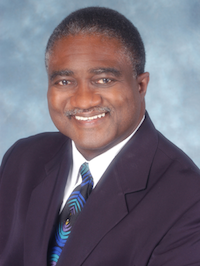
Above: George E. Curry, NNPA Columnist
JERUSALEM — On Election Night, I usually stay awake as long as my eyelids are willing to cooperate. But this year was different. Instead of alternating between watching CNN and tracking results on the Internet, I was in the Holy Land, nearly 6,000 miles from my office in Washington, D.C.
With Daylight Savings Time going into effect last Sunday, I was in a time zone Tuesday seven hours ahead of Eastern Standard Time. That meant that instead of hearing the TV network projections trickle in as polls closed in different regions of the U.S., I had to go to bed not knowing if Democrats had lost control of the Senate, as predicted, and how well African Americans had turned out in the pivotal states of North Carolina, Georgia, Louisiana and Arkansas.
I fell asleep in my hotel room confident of two things: First, no matter how strong Blacks went to the polls in this off-year election, when voting historically favors the party out of the White House, Democrats were unlikely to regain control of the House of Representatives. Second, if Republicans managed to wrestle control from Democrats in the Senate, Democrats would blame the low turnout among African Americans.
Before departing Washington, I already saw this scenario unfolding. Both the New York Times and the Washington Post, the two most politically influential newspapers in the nation, had published stories about the importance of the Black vote in Tuesday’s midterm election and that without a heavy Black turnout, the prospect of Democrats retaining the upper chamber were doomed.
Missing in the analysis was how Democrats had shot themselves in the foot. It is important to understand that most White voters don’t support Democrats. The last three Democrats elected president – Jimmy Carter, Bill Clinton and Barack Obama – won each time with a minority of the White vote. Considering there are more White voters in the U.S. than Blacks, perhaps a more appropriate question is: Why are White voters not turning out for Democrats? All that weight should not fall on the shoulders of Black voters.
A second point to remember is that even with Black voters being key to Democratic success, Democratic strategists have not, as the old lady making church announcements puts it, governed themselves accordingly. Even in battleground states, they didn’t purchase ads in most Black newspapers, if they bought any ads at all, until the waning days of the campaign. Last-minute White House efforts were largely directed at radio programs hosted by comedians and DJs, as if they could mobilize Black voters all by themselves with shallow drive-by interviews.
Although I was on foreign soil on Election Night, I did my civic duty by voting before I left. That, too, was different. I usually enjoy the energy of voting on Election Day, seeing who turns out and watching as children enter the voting booth with a parent. Voting early this year had its own satisfying sensation. There was the sheer joy of knowing I had made my voice heard, even though I wouldn’t be home on Tuesday.
My attention for the past two weeks has been split between the midterm elections in the U.S. and growing tension between Israel and Palestine. Though I have been in the Middle East for that period, at times I had to double-check to make sure I wasn’t reliving my childhood in segregated Tuscaloosa, Ala.
Israeli Defense Minister Moshe Ya’alon, reacting to pressure to settlers on land formerly occupied by Palestinians, has proposed barring Palestinians who live in the West Bank, but commute to work in Israel from riding the same buses as Jewish riders. The proposal to operate segregated buses like the ones I grew up with in Alabama is facing a strong pushback from other Israeli leaders and supporters of Israel in the U.S.
Equally disturbing, a delegation of African Americans visiting the village of Bil’in Saturday afternoon was looking at the long, concrete wall encircling a large settlement on previously occupied Palestinian land in the West Bank when one of our hosts noticed a jeep inside the housing compound headed in our direction. No one worried because we were on the outside of the settlement, which is about seven miles west of the Ramallah, and we were not breaking any laws. Still, moments later, several canisters of tear gas were fired just yards from us, forcing us to flee. Most of us were coughing and feeling a burning sensation in our eyes as we quickly fled. It was but a small sample of what Palestinians experience in their everyday life.
I will be returning home this weekend after a fascinating two-week trip. I will write a series of stories based on visit upon my return. And like all trips abroad, I will be following news out of the Middle East more closely than before. That is always one of the lasting benefits of traveling to other parts of the world.
George E. Curry, former editor-in-chief of Emerge magazine, is editor-in-chief of the National Newspaper Publishers Association News Service (NNPA.) He is a keynote speaker, moderator, and media coach. Curry can be reached through his website, www.georgecurry.com. You can also follow him on Twitter at www.twitter.com/currygeorge and George E. Curry Fan Page on Facebook.

